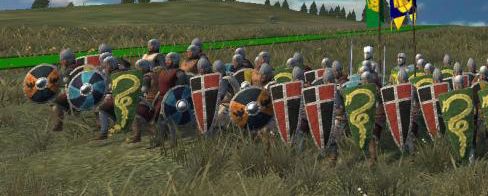This might be slightly later than the Rome II/DEI time period, but I've always wondered this. After the Roman ("Byzantine") military transitioned into the Thematic system under Heraclius and away from the Legionary system, how did they name their military units? Instead of calling a unit Legio II Italica or Legio IV Syriana, etc, would they have called it Thema Armenia or something?
In my Epirus campaign, my military includes almost as many Italian units as Greek ones, and my faction is basically a Greco-Italian Empire after taking Rome. Instead of having armies called random names like "The Champions of Athena," I am looking to rename my units to something else. Something a Greek speaking Roman successor state might have called their armies, even if it is a tad ahistorical.




 Reply With Quote
Reply With Quote















